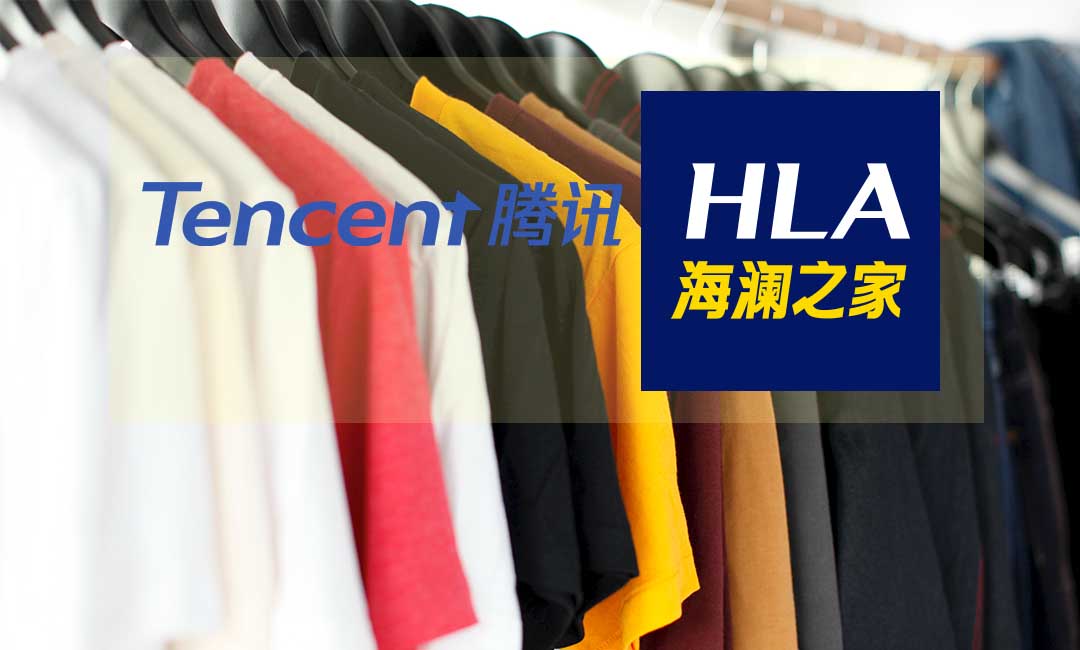Tencent, the tech mogul behind WeChat, is acquiring a 5% stake in Chinese leading menswear HLA (海澜之家). The two companies are said to establish a joint venture dedicated to investing in the clothing industry, according to 36Kr.
The move signifies that the Chinese new retail war, which flared up first in the field of supermarkets and department stores, is now spilling over into more vertical sectors, like the clothing retailing market.
According to data released by China’s National Bureau of Statistics, Chinese total retail sales of consumer goods went up by 10.2 percent yoy while clothing retail, in general, is slowing down. In contrast, online retail sales of clothing are rising steadily.
A 2016 Fung Business Intelligence report also pointed out that Chinese apparel market has experienced slower growth over recent years, it is still growing, but at a slower pace.
The physical store conundrum against the backdrop of an uptick in online apparel sales probably speaks to the Tencent-HLA tie-up, which is the latest of a slew of Tencent’s fast foray into similar deals with brick-and-mortar stores.
In such a yet-to-reform sector, HLA is one of the best choices for tech juggernauts to test the water, given its leading market position with an RMB 51.36 billion (approx. USD 8.14 billion) market capitalization and over 5000 stores across China.
By working together with tech giants like Tencent, HLA gets to further enhance its dominant place. Its ambition was revealed by its partnership with Tencent archrival Alibaba in last August. The two were in discussion to enable smart shopping experience in 5000 HLA stores to enable smart retailing. However, HLA suddenly changed its course when the new year starts. In January Liu Qiangdong, founder of JD, Tencent’s most powerful and closest ally in new retail, promoted HLA on his Weibo, indicating the upcoming shift to Tencent.
To Alibaba, or to Tencent?
For HLA, and probably every other offline retailer who hasn’t sided with one of the local tech giants, the choice between Alibaba and Tencent is never going to be easy.
Alibaba is apparently a front-runner in terms of new retail and the Hangzhou company is more versed in the business of selling things. While Tencent has JD as it’s reliable ally in online retailing and a triumph card of Wechat which is the most popular mobile app in China that is an ideal vehicle to connect things from online to offline, or vice versa.
Tencent’s recent investment to push for its new retail strategy:
- Carrefour (supermarket chain): Tencent reached a strategic partnership with Carrefour in January 2018.
- Yonghui (supermarket chain): Tencent acquired a 5% stake in Yonghui in December 2017
- VIP.com (e-commerce website): Tencent made strategic investment in VIP.com in December 2017
- Meituan-Dianping (e-commerce): Tencent made an investment in Series E round in January 2016 and a strategic investment in October 2017.
- MissFresh (fresh food e-commerce): Tencent made an investment in Series A round in June 2017.
- Pinduoduo (Group buying): Tencent made an investment in Series B round in July 2016.
